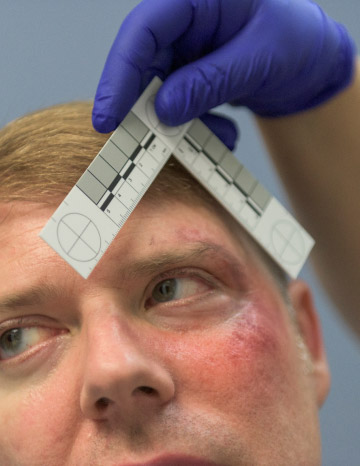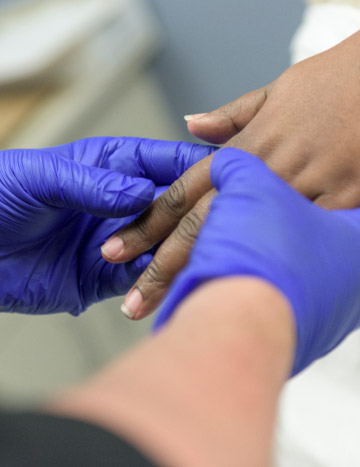The Leader in Forensic Nursing Research, Outreach & Education
 The Texas A&M Health Center of Excellence in Forensic Nursing offers unsurpassed research and training opportunities by providing forensic nursing education and outreach for nurses, other medical professionals, law enforcement, attorneys, social workers and advocates. The Texas A&M University System Board of Regents formally approved the Center of Excellence in Forensic Nursing in 2019, establishing the state's first state- and federally funded center. This designation significantly expanded the capabilities and funding for the Texas A&M College of Nursing's initiative to advance forensic nursing education, outreach and research.
The Texas A&M Health Center of Excellence in Forensic Nursing offers unsurpassed research and training opportunities by providing forensic nursing education and outreach for nurses, other medical professionals, law enforcement, attorneys, social workers and advocates. The Texas A&M University System Board of Regents formally approved the Center of Excellence in Forensic Nursing in 2019, establishing the state's first state- and federally funded center. This designation significantly expanded the capabilities and funding for the Texas A&M College of Nursing's initiative to advance forensic nursing education, outreach and research.
What is forensic nursing?
Victims of violence—those who endure sexual assault, intimate partner violence, neglect or any other form of intentional injury—deserve and require patient-centered, trauma-informed care. Forensic nurses are professionally trained to treat these victims as patients, keeping them and all they have endured at the center of that treatment.
The vision of the center is to be a nationally recognized, well-funded and endowed research, education and outreach Center of Excellence in Forensic Nursing.
The mission of the center is to improve the health outcomes of those affected by violence and disaster. The center leads the nation in developing and implementing interdisciplinary, trauma-informed strategies to prevent and address violence across the lifespan through research, academic programs, continuing education and outreach.
The goals of the center are to:
- Educate nurses to provide high-quality, trauma-informed care to those affected by violence;
- Collaborate with stakeholders to provide a holistic response to the multifaceted aspects of violence in communities;
- Advance forensic nursing knowledge through research, scholarship, technology and innovation; and
- Develop forensic nurse leaders with graduate nursing education.

Texas Evidence Collection Protocol
Updated in an unprecedented, joint collaboration with the Office of the Attorney General, this document serves as the standardized guide for health care professionals across the state of Texas.
Full document | Pediatric flowsheet | Adult flowsheet
Texas Evidence Collection ProtocolAdditional Forms & Resources
Tex-TRAC
Providing expert care to sexual assault victims in rural and underserved communities of Texas.